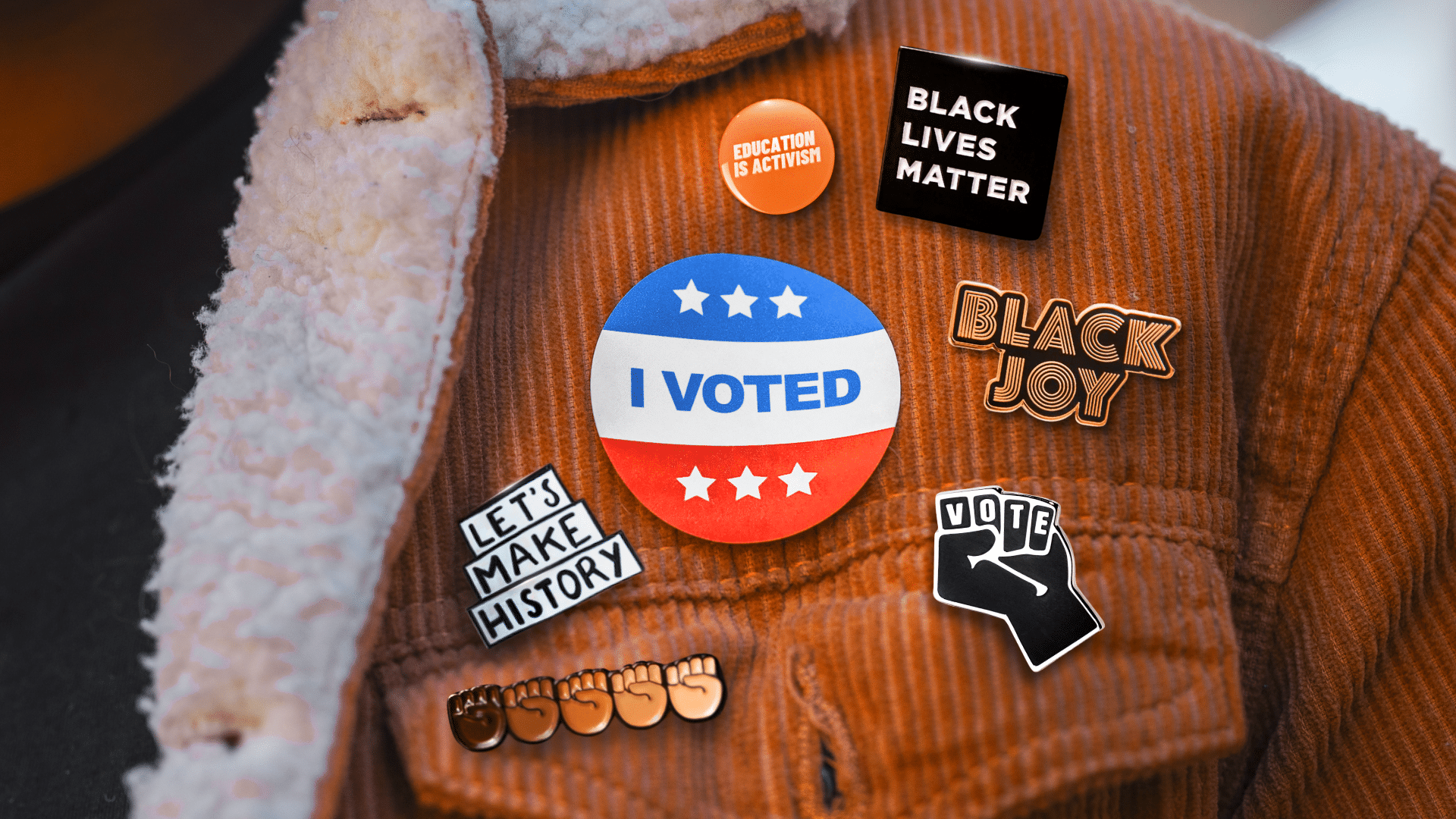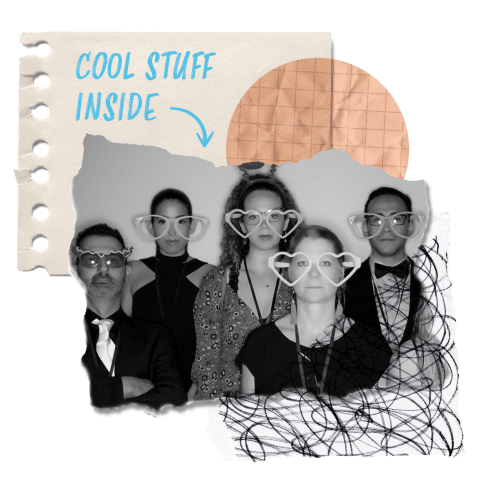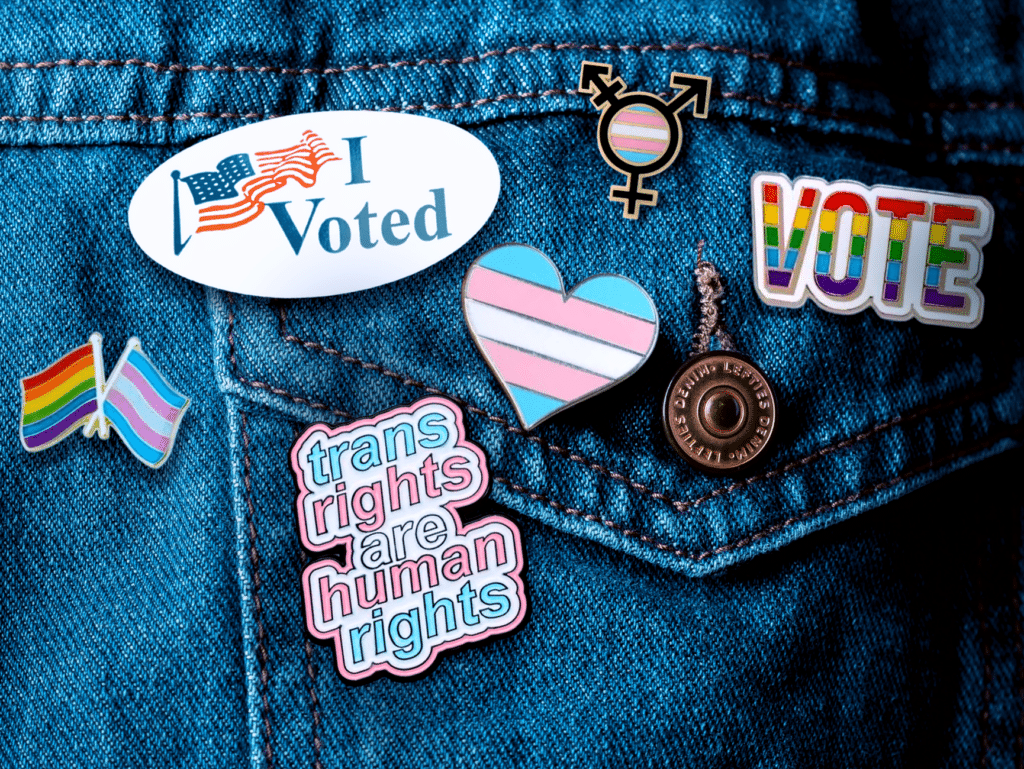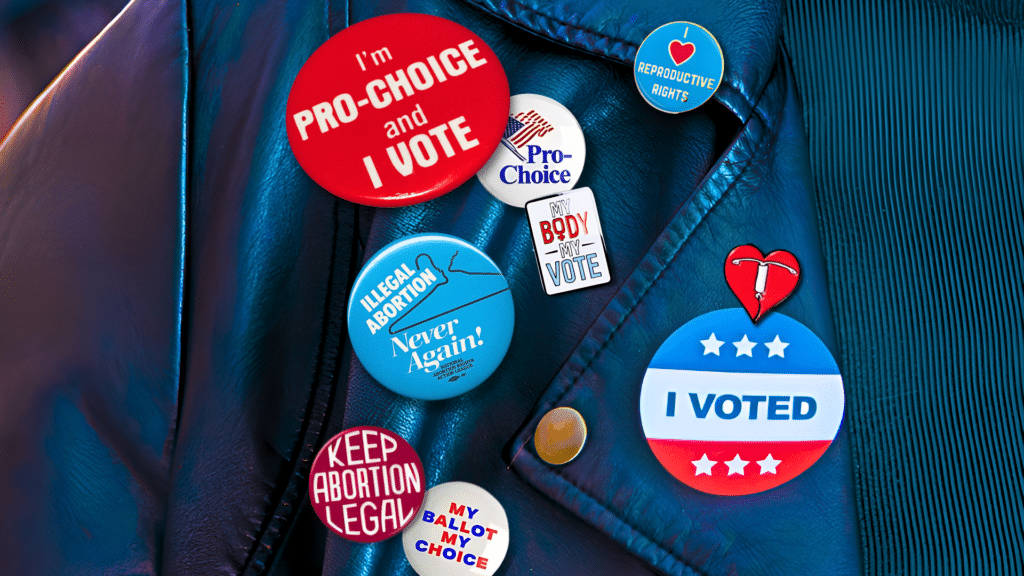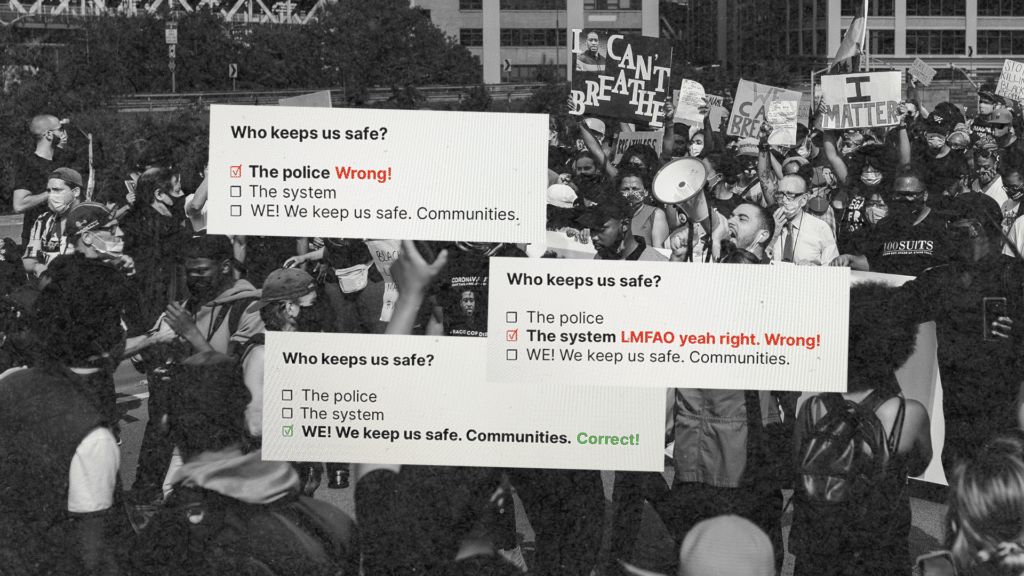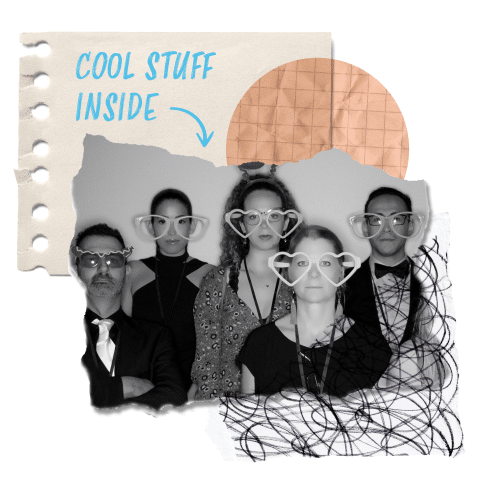This is the third blog post in our summer 2024 series about how we can all mobilize against Project 2025, the policy guide for conservative presidential candidates produced by the Heritage Foundation.
The series draws attention to the so-called “breakdown of the family,” which is the #1 theme behind the policy recommendations outlined in Project 2025’s “Mandate for Leadership.” It describes how a conservative presidential regime will “decide America’s future” by protecting white supremacy, ending abortion and attacking trans people.
Mixte spoke with The Expectation Project’s President Zakiya Jackson about how to combat Project 2025 piece by piece, and to wield our voting power in pursuit of joy.
Interview has been edited for clarity and brevity.
Have you seen a shift over time in how the right wing is attacking communities of color?
I’m not observing a shift that is different than the historical legacy of anti-Blackness, anti-Indigeneity, anti-non-white-immigrant. I think it’s consistent.
What I think is different is the degree to which these attacks are publicized and are openly being rallied and discussed right now. It’s much more explicit. For example, when I was a little girl growing up in the South, I knew that there were certain places not to go because those white folks hate Black people. They were open with us about it then, but now, it’s seen in a different way, so it’s recorded and publicized differently.
And sometimes it’s even denied! Like when Trump first ran for office, people asked, “well, does he really mean… you know…” Yeah, we know what he meant! But people spent a lot of time debating if he’s really as bad as he says he is. As mother Maya Angelou taught us, we should just believe him, plus his track record, when he said the things he said.
So yes, it might feel new if you were in some ways in a closet or hidden from things, but it’s not new if you haven’t been sheltered or if you’ve been paying attention.
What do progressive movements overlook, or misunderstand, about the threats we’re up against right now?
Progressive movements often look at this as a specific point in time that we just need to get past. It’s like, “We just need to make sure we don’t fall into a dictatorship, and then we’re good.” And it’s true! It is important that we not fall into a dictatorship; it is important that we avoid Project 2025.
However, it’s unfair to look at things as though there’s just this big hump we need to get through, and then we’ll get back to America as usual and we’ll work across the aisles real sweetly together.
“Work across the aisle” produced the crime bill of the ‘90s and the War on Drugs in the 80s. It produced locking up Indigenous children in boarding schools. All of that “across the aisle” work produced terrifying, horrifying results for Black families, Brown families, families of color and mixed-status households.
So, it’s false to think this is a point in time we just need to get through, and not think about it more so as, how are we fighting towards a true democracy? And how are we fighting towards true liberation that is addressing how a lot of white people are struggling because they can’t be centered the same way anymore?
True democracy and true liberation — that feels like a really rich vision. Do you have more to say about that?
I’m in pursuit of what I believe is the type of joy we actually can have. Too often in progressive movements, people are short-sighted in terms of the urgency of the moment. We’re still only looking at what’s wrong, and that’s super draining and exhausting and painful.
But what can be, is that we can be seen as fully human. We can go to schools where we are allowed to fully express ourselves, and learn in ways that are engaging. We could have health care that serves everyone. We can have places where people feel safe, and don’t have to rely on violence — because violence doesn’t make people feel safe, it makes people feel powerful. And there’s a difference between power and safety.
One of the activities we do at TEP that’s really hard for folks to do, is name it. What does it actually look like to thrive? For you as an adult, but also for children? It means feeling safe. What does it sound like? What are you hearing? What does your body feel like?
It’s all these things that we can be pushing towards and creating. Which is why progressive movements are short-sighted, because they’re talking about stopping the worst possible outcome. Yeah, we should do that, but we should also be able to sleep at night; not be in pain all the time. We should like the books we’re reading, have options, be able to work and then play and rest…
We could have something that’s far more beautiful than what we have, so let’s not stop at fighting to escape hell.
How does that mindset show up in TEP’s advocacy work?
The significant shift we’ve made as an education-focused organization is to talk about systems that impact children, and what allows a child to have a good life, not only what happens in school.
We talk about economic mobility now. Because how much money a family has does impact whether a child is distracted by being hungry at school. Because Wi-Fi still isn’t free, it impacts whether a child can get their homework done.
We’re using the language of thriving more, because we don’t want to just close the “achievement gap” for the achievement gap’s sake. Our umbrella for all of our policies is, how do we center the joy of Black and Brown children from a policy perspective? Economic mobility, and addressing the anti-truth movement and policies, are all related to that.
When we first started talking about policy that way, we didn’t really hear people talking about it like this. But why not? Why can’t we talk about policies in terms of joy, and how joy allows for thriving and for learning?
In the wake of that shift, how are you and other advocates in your field combating threats like the ones Project 2025 is suggesting?
Project 2025 is huge. The document itself is almost a thousand pages. It’s overwhelming, right? So, a big part of our work at TEP is educating people.
We put complicated policy information into manageable chunks, educate people on it, and encourage them to talk about it in their context and in their communities. We sound the alarm, but sound it in a way that is usable.
Sometimes in progressive movements, when we sound the alarm, it’s either that we’re not sounding it at all, or we are screaming our heads off. When someone is screaming, it’s actually hard to hear what they’re saying. So a lot of our work [with Project 2025] is like helping people breathe through the chaos.
We reassure them that you don’t have to memorize this thing, but you do need to wrap your mind around pieces of it if you want to fight it — because others are being deployed in all sorts of ways trying to convince us that, 1) it’s not that big of a deal, or 2) that it is actually to our benefit.
How can we prevent Project 2025’s dangerous vision from being realized? What would you call our readers to do?
First, I would ask people to familiarize themselves with two or three terrible things from Project 2025, and talk about them! Consider for example that they want to eliminate Head Start, which impacts almost a million children, lots of them Black and Brown. If you have people around you who also care, maybe each of you pick different things, so nobody has to become an expert on everything.
The other thing I’d say is to vote down the entire ballot. What happens locally has a huge impact, especially on school boards. Use the things you picked from Project 2025 as a lens. Ask yourself, what does a candidate say about Head Start and education?
Last, sustain yourself. Be in community with people who care. Celebrate being alive, to the degree that you can, and figure out how to support each other as we resist these very scary things.
Believe in the Future We Can Have
Take action to combat racist initiatives like Project 2025 — and help to build something even better. Familiarize yourself with Project 2025, and use TEP’s voter guide.
Then, learn from the other advocates in our summer series who are standing up for the communities that Project 2025 seeks to demonize.
